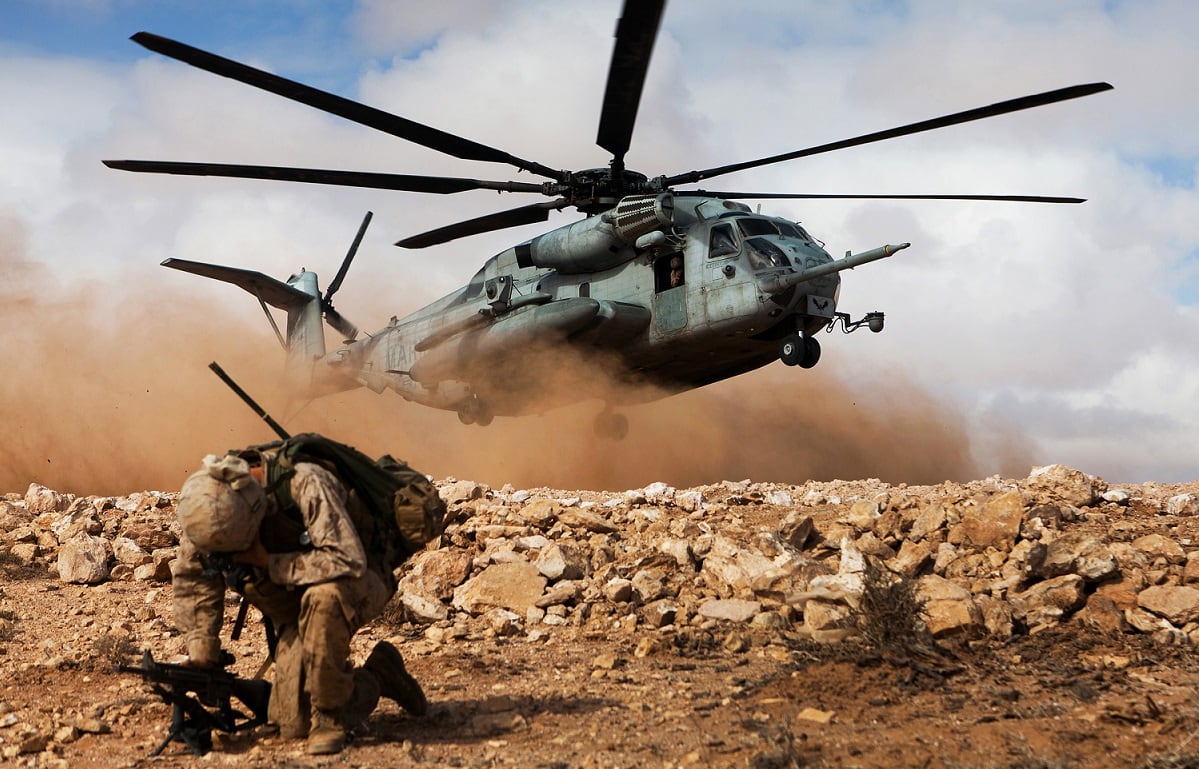The strength of the United States is reflected by its values, diversity and what we can offer the world as a collective whole.
While the nation’s military might is unrivaled, a robust whole of government approach enables security, stability and prosperity. What the U.S. has proven it can deliver makes it a partner of choice for many.
This point became abundantly clear when I accompanied Ambassador Alexander Laskaris, deputy to the commander for civil-military engagement at U.S. Africa Command, to Nigeria, Benin and Cote D’Ivoire this week. Ambassador Laskaris conducted engagements with U.S. embassies, foreign and U.S. ambassadors, top African military leadership, and the president of Cote D’Ivoire, Alassane Dramane Ouattara.

The experience enhanced my direct understanding of what Africans value and their areas of concern. Border security and the potential for the migration of threats were unanimous common concerns shared by each African nation.
In Africa, poverty, swaths of criminal activity, the presence of violent extremist organizations and rapid population expansion are realities.
The value of professional U.S. military training, quality equipment and education were unanimously expressed by our African partners.
If African countries are to become exporters of security beyond their borders, and not importers, U.S. government educational programs and partnership-building capacity are key.
Access to education and basic services are not birthrights, assured as they are in wealthier countries.
Where education exists in Africa, a hundred children can be packed in a classroom. There is a strong demand signal for improved education, especially for English language training.
We had the opportunity to engage with African officers who attended the U.S.’s Defense Language Institute at Lackland Air Force Base, Texas. Among many impressive African officers, we met a remarkable female African military officer who is a doctor and speaks five different languages. The African officers spoke glowingly about the value of the DLI experience and desire to export it to others. Cote D’Ivoire adopted the DLI curriculum and is educating other Africans. The program clearly met an African identified need and forged powerful connections.
African partnership takes many forms, whether it involves capacity building or some other means of support.
For instance, the recent increase in U.S. Africa Command airstrikes in Somalia has received considerable attention of late. It’s important to review the purpose of these actions. The U.S. supports the federal government of Somalia’s efforts to restore democratic rule by degrading the al-Shabab terrorist organization. Airstrikes against al-Shabab enable enhanced security conditions, creating expanded opportunity for the government and economic development to take hold.
Additionally, striking al-Shabab militants disrupts external attack planning and reduces the regional and transnational threat posed by the organization to the African continent and beyond. These airstrikes are carried out with the utmost precision and care. The airstrikes occur primarily in secluded, low-populated areas using technology that affords pinpoint accuracy. The airstrikes are certainly not a standalone solution, but they are in support of and meet a partner’s needs.
While the airstrikes get most of the attention, U.S. Africa Command’s primary emphasis is placed on enhancing partnerships and building African capabilities and trust via a versatile range of programs and military exercises.

For instance, the U.S. National Guard State Partnership Program, guided by U.S. State Department objectives, creates connections between National Guard units and 14 African countries. This program helps create enduring relationships while building trust and mutual respect. At AFRICOM, the goal is to strengthen regional security while helping the U.S. become a partner of choice.
U.S. Africa Command’s chief enlisted leader, Chief Master Sergeant Ramon Colon-Lopez, has championed noncommissioned officer professional development on the continent, emphasizing enlisted education, training and creating enhanced military effectiveness across the ranks. As Ambassador Laskaris pointed out during the Africa engagements, when a need arises, people need to run toward their military, not away from it. A professionally trained force provides those reassurances.
To that end, U.S. Africa Command hosts a series of military exercises to help African nations meet their security needs. These events lead to enhanced mutual understanding, bolstered capabilities, and the sharing of defense practices and principles. U.S. Exercise Cutlass Express involved 470 African partners from nine countries. It demonstrated the capability of the U.S. military, along with African and international partners, to counter various illicit trafficking efforts. In March, U.S. Air Forces Africa hosted African Partnership Flight Rwanda to enhance African partner aviation capacity, increase interoperability between nations and improve flight safety.
At Cote D’Ivoire, the nation’s president and senior military officers shared how the recently concluded Obangame Express maritime exercise bolsters military capability and security.
Each African state remarked favorably on the quality of U.S. military training, education and equipment.
While these areas are important, enduring solutions to challenges in Africa are inherently political and economic in nature. Therefore, DoD’s contributions benefit from U.S. State Department, USAID and other programs.
To achieve their objectives, it is clear African nations are exploring options.
The African continent is a place where China is viewed as highly visible and influential. In addition to their base in Djibouti, high-ranking Chinese officials have visited 43 African countries in the last 10 years. They are connecting with Africans and increasing trust while delivering affordable products. This could visibly be seen, as Chinese-made motorcycles were very much in evidence on African streets and were a topic of discussion.
While there are complexities and challenges in Africa, tremendous opportunity exists. It should come as no surprise, others see the possibilities as well. While U.S. training, security assistance and whole-of-government programs are viewed as the gold standard on the continent, if U.S. presence and influence falls short, others will look to fill the void. Ultimately, Africans will choose their own path, but U.S. Africa Command, working alongside its’ partners, is doing its part to make a difference and remain the preferred partner of choice.
Air Force Col. Chris Karns is director, U.S. Africa Command Public Affairs.




